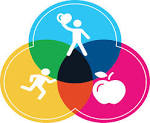Ready to have your mind hole blown to smithereens? one too two acres of the rain forrest is destroyed every single second due to animal agriculture. That means specifically 1-2 acres are destroyed primarily for animal grazing. Consequently, hundreds of plants, animal and insects species are exterminated not by the terminator, but due to senseless deforestation and utter annihilation of our rainforests. The effects of these methods are quite frankly becoming virtually irreversible and ungodly irresponsible by those committing them; the worst part is, they, they being the owners of these cattle, do not see a need for change or show no signs of advocating for it. Did you know that methane gas is more actually two too four times more destructive than Co2 emissions when analyzed on a 20 year scale? Thats right, methane, the natural by product of these million of cows when being grain fed all day, is destroying our environment at 4x the rate of literally every arm of the transportation system combined. The methane gas gathered from these animals account for actually 51% of the worlds greenhouse gas emissions. This horrific bundle of statistics, including the cheese and dairy industry, is going to be utterly doubled, an expected 86% increase by the year 2050. To continue the point, cows, literally just cows, produce 150 billion gallons of methane gas per year which is ludicrous. Even if we shut down every factory, turned off every car and effectively ended our personal carbon footprint, wed still be where we are, pretty far in the hole.
Alec Utz






